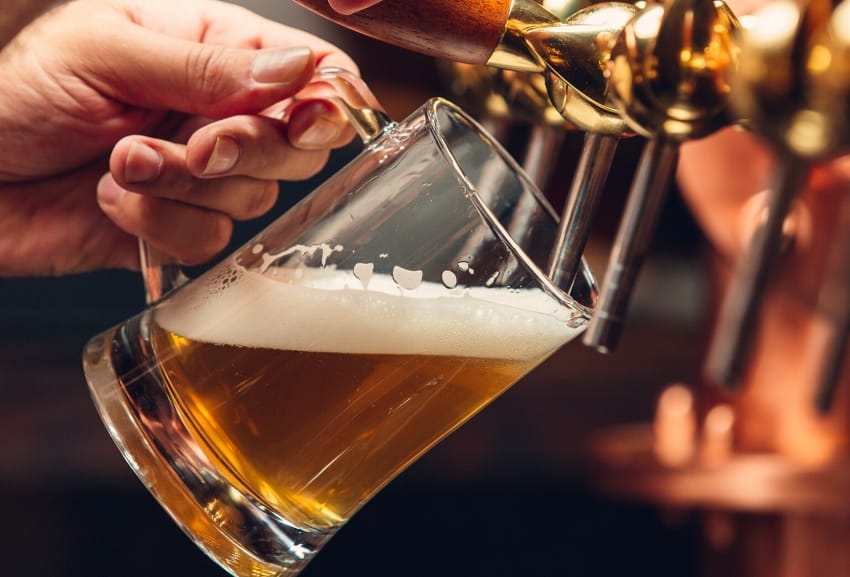Graded Reading - Elementary
When you are in Britain, take the opportunity to visit your traditional local pub. The atmosphere is friendly and there is a variety of drinks. You can order alcoholic drinks like beer, cider and spirits, or non-alcoholic drinks such as coca-cola, orange juice and sometimes coffee or tea.
What you need to know:
- Order your drinks from the bar not at the table. Queue near the bar with your money in your hand. When it is your turn (not before!) name the drinks you wish to order. Remember beer and cider comes in two sizes: a 'pint' (0.56 litres) or 'a half' (0.23 litres).
- If you go in a group, it is normal to take turns to buy the drinks for your friends. This is called 'buying a round'. It is important that everyone takes a turn. Ask someone in your group to help you carry the drinks to the table. You can ask for a tray if necessary.
- Before you taste your drink, you must all 'clink' (touch) glasses and say 'cheers!' It's a social way of celebrating being together.
- The traditional snacks we eat in pubs are packets of crisps and nuts. Don't forget there are many flavours of crisps, for example cheese and onion, smoky bacon or roast chicken! Many pubs also serve hot or cold meals. You order and pay for these at the bar.
- Many pubs have a special 'quiz night' once a week. You can usually play by paying a small fee for your team. There is a prize if your team answers the most questions correctly. On a Saturday or Sunday evening, there is often live music from a local band. Look out for posters. It's generally free of charge.
- Another typical activity in a British pub is the game of darts. You can play this for fun with your friends or sometimes there is a competition. Snooker and pool are also popular games.
Many pubs still have a typically British name. You can see this on a sign outside, usually with a painted picture on it. Some of these signs are very beautiful. The most popular pub name is 'The Red Lion' with 384 pubs in the UK, but there are also many pubs called 'The Royal Oak' (344 pubs) or 'The Crown' (328 pubs). Some pubs are famous for a particular reason. For example 'Ye Olde Trip to Jerusalem' in Nottingham says it is the oldest pub in England and was built in the year 1189! If you want to see Britain's smallest pub, go to a place called Bury St. Edmunds (one hour from Cambridge) and look for a tiny pub called The Nutshell. The pub is just 4.5 metres x 2 metres in size and only has enough space inside for 15 customers at the same time!
Internet Sources
Great British Mag: What is British pub culture? Available from: https://greatbritishmag.co.uk-culture/british-pub-culture/ [03/11/2019]
Culture Trip: The 5 Most Popular Pub Names in the UK. Available from: https://theculturetrip.com/europe/united-kingdom/articles/the-5-most-popular-pub-names-in-the-uk/ [07/11/2019]
Wanderlust: Squeeze in a pint at one of Britain's smallest pubs. Available from: https://www.wanderlust.co.uk/content/britains-smallest-pubs/ [9/11/2019]
The Traditional British Pub: comprehension questions
- What drinks can you usually buy in a British pub?
- What are the two sizes for beer or cider?
- What do we call it when you buy a drink for everyone in your group?
- Which city has the oldest pub in England?



